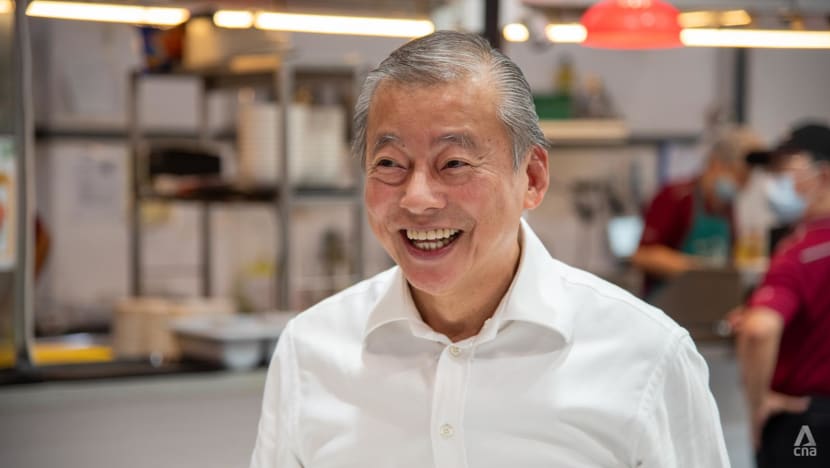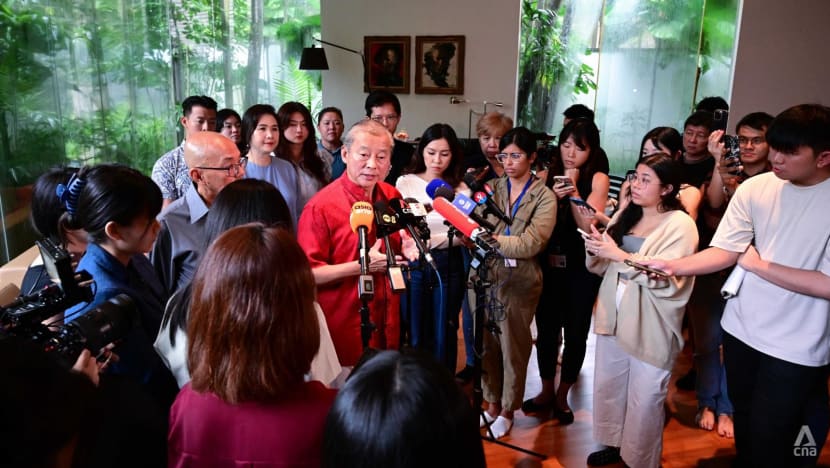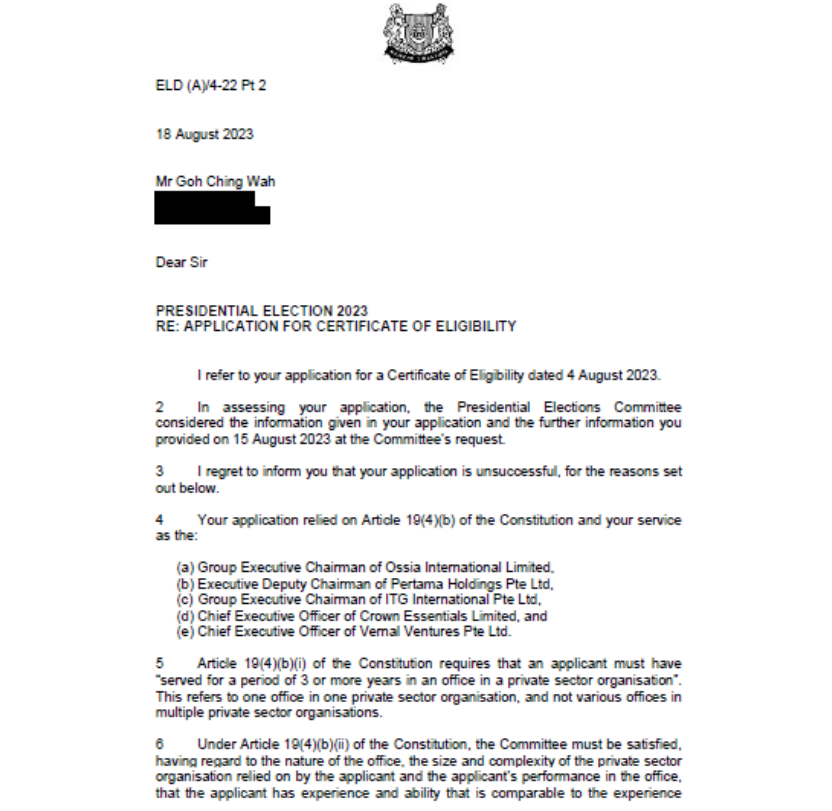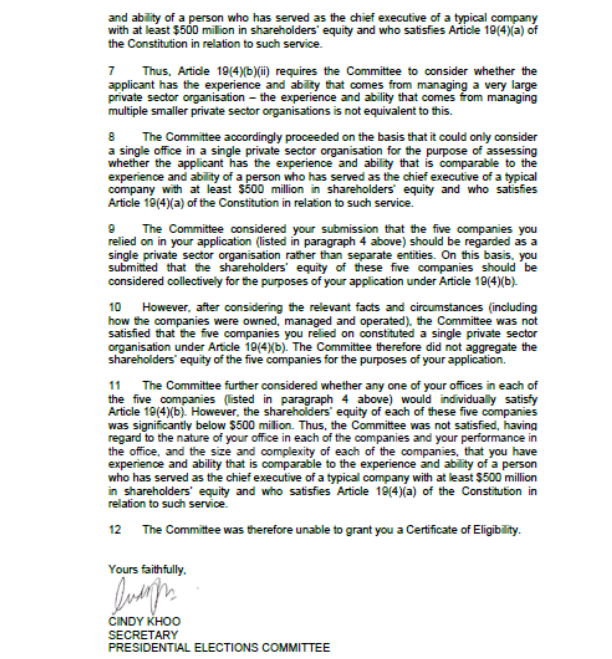Presidential Elections Committee makes public its reasons for rejecting George Goh's eligibility application
George Goh was deemed ineligible to run in the Presidential Election as his experience and ability in managing five smaller firms is not equivalent to a "very large" one, as required under the Constitution, says the Presidential Elections Committee.

File photo of George Goh in Singapore on Jul 27, 2023 (Photo: CNA/Javier Lim)
SINGAPORE: The Presidential Elections Committee (PEC) on Friday (Aug 18) rejected businessman George Goh's claims that it failed to explain the rationale behind its decision not to issue him with a certificate of eligibility to run in the upcoming election.
After the Elections Department named the successful applicants, Mr Goh's team issued a statement on Friday afternoon saying that the committee "took a very narrow interpretation of the requirements" in rejecting his bid, "without explaining the rationale behind its decision".
The statement said the PEC rejected a "very strong case" detailing Mr Goh's experience in managing five companies which his team claimed met the shareholders’ equity and profitability criteria.
During a press conference at his house on Friday, Mr Goh, the founder of Harvey Norman Ossia, said he could not accept the PEC's decision. "I personally think it's not a fair decision," he added.
In response to the allegations, the PEC said in a media release on Friday night that it has decided to make public its letter to the 63-year-old businessman which explains its rationale for not granting him a certificate of eligibility.
In the letter, the committee pointed out that the Constitution requires it to consider whether an applicant has the experience and ability that comes from managing a "very large" private sector organisation.
"The experience and ability that comes from managing multiple smaller private sector organisations is not equivalent to this," the PEC wrote.
Mr Goh had based his application on a group of five companies and the collective shareholders' equity of these firms, which he said amounted to S$1.52 billion (US$1.1 billion) over three years.
The criteria, which was amended in 2016, requires a prospective candidate to have helmed a company with at least S$500 million in shareholders' equity during the person's most recent three-year period as CEO.
In its letter to Mr Goh, the committee noted that he served as the chief executive officer of Crown Essentials and Vernal Ventures, the group executive chairman of Ossia International and ITG International and the executive deputy chairman of Pertama Holdings.
It added that it had carefully considered Mr Goh's submission.
"However, after taking into account the relevant facts and circumstances (including how the companies were owned, managed and operated), the committee was not satisfied that the five companies constituted a single private sector organisation," the PEC said.
"Mr Goh’s application acknowledged that the five companies he relied on are not a unitary company and are not owned by a common holding company, but Mr Goh submitted that the five companies should be regarded as a single private sector organisation."
The shareholders’ equity of each of the five companies was also “significantly below S$500 million”, which is the minimum requirement for applicants who apply under the deliberative track for the private sector.
The six-member PEC is headed by Public Service Commission chairman Lee Tzu Yang and includes two Supreme Court judges.
In announcing the list of eligible candidates on Friday morning, the Elections Department said the unsuccessful candidates were given the reasons for the PEC's decisions.
These reasons were not published due to concerns that potential applicants may be dissuaded from stepping forward to contest the elections for "fear of embarrassment".
Among the four people who had made public their bid to run for the Singapore presidency, Mr Goh was the only one who was unsuccessful in his application.
The three candidates who qualified to run for the presidency are former GIC chief investment officer Ng Kok Song, former NTUC Income chief executive Tan Kin Lian and former Senior Minister Tharman Shanmugaratnam.

When asked earlier about his response to the PEC's decision, Mr Goh told reporters that “it is a very sad day” but that he has no regrets about having thrown his hat into the ring.
He added that he had "a group of advisers" comprising "top people in Singapore" which gave him confidence that he would qualify.
"Are you saying they're all wrong? Cannot be. They're all from the system," he said during a press conference held at his house on Friday afternoon. "I cannot accept the decision given by them. I personally think it's not a fair decision."
















